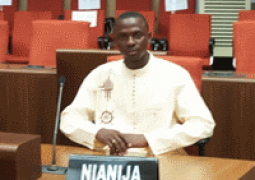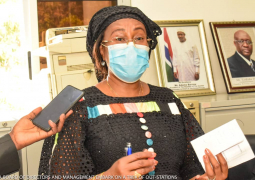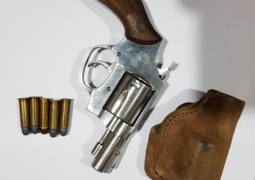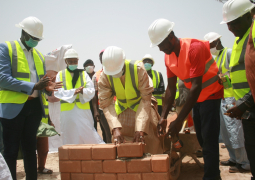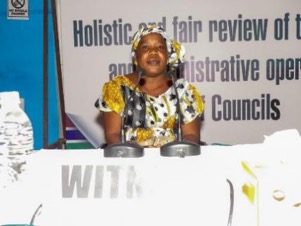
Being one of the administrative areas in the country, LRR is being administered by the Mansakonko Area Council. However, serious lapses in the local governance structure have severally been raised, especially by auditors.
Madam Gassama is a resident of Soma and a market collector for the Mansakonko Area Council. She testified last week Thursday, confirming as true serious issues of concern to the Commission.
Her witness statement and a letter addressed to her with the heading market overseer and dated 31 May 2021, were both tendered and admitted to records.
She testified that she was employed in 2008 as a revenue collector and promoted as overseer of the Soma Market in 2021. She said that between 2008 and 2021, she was not promoted to any position as she remained at the same level as revenue collector.
She added that when she started she worked at the Lummos and the Soma Market.
She stated that she has been working with 9 people in the market who collect revenue daily from morning to 3 pm.
She testified that after collecting revenues for the day, which could amount to between D4,000 and D6,000, she would, as required, deposit the monies into the accounts of the Mansakonko Area Council.
Other market collectors, she further stated, would give her their collected revenues to deposit at the bank.
On her duties as an overseer, the witness said she is responsible for collecting the market GTR books from the council for distribution to the other revenue collectors.
Moreover, she elaborated, that after collection she normally sits with the other revenue collectors to count the cash before she deposits the total to the bank.
Madam Gassama was, at this interval, quizzed on payments made in her name, which amounted to over six transactions. She denied any liability.
“Do you make payments from monies you collected or not?” Lead Counsel Yakar Cox asked.
In response, she testified: “Sometimes, they would call me and instruct me to take the money to the council instead of banking it."
After giving them the cash, the witness said the director of finance usually gives her a receipt which she uses for reconciliation. She informed the Commission that it happened in 2023, when CEO Seedy Touray called and requested her to bring the money to the council.
“The normal procedure is [that] every money collected should be banked. But the CEO will call me and say they have pressing issues at the council to take care of and I used to give them money. I don’t know how they spent the money I gave them,” she claimed.
The witness said the women in the market have been complaining that there are other vendors outside who make more sales than them. She said that this is because the vendors who sit outside are more accessible than those inside the market.
The witness said the big market in Soma used to have two taps but currently only one is working. She said the small market has only one tap.
At this point, Chairperson Jainaba Bah referred the witness to the 2021 audit report by the National Audit Office that the markets lacked good toilet facilities, had visible gaps in the roof, poor sanitary system, lacked proper floors and had no tiled walls or light.
Without hesitation, the witness admitted that the toilet facilities are in bad shape, as he confirmed the citations of Chairperson Bah.
Again, in a response to a question by Commissioner Oreme E. Joiner regarding whether she has a supervisor as market overseer, the witness said she had one but for a long time now she has no one supervising her.
Quizzed on how many days she works, she said they work everyday, including the weekends.
Hearing advanced and Chairperson Bah informed the witness that the bank statements for Mansakonko Area Council did not indicate that there were daily deposits made for revenue collection.
The chairperson informed the witness that in 2018 and 2019, the maximum deposits were D3,000 but in most instances they deposited D1,000.
“The reason for the D1,000 [is that] we receive instructions to pay fuel and deposit the remainder. So, if we take from what we collected and purchase fuel, the remainder is usually D1000,” she claimed.


